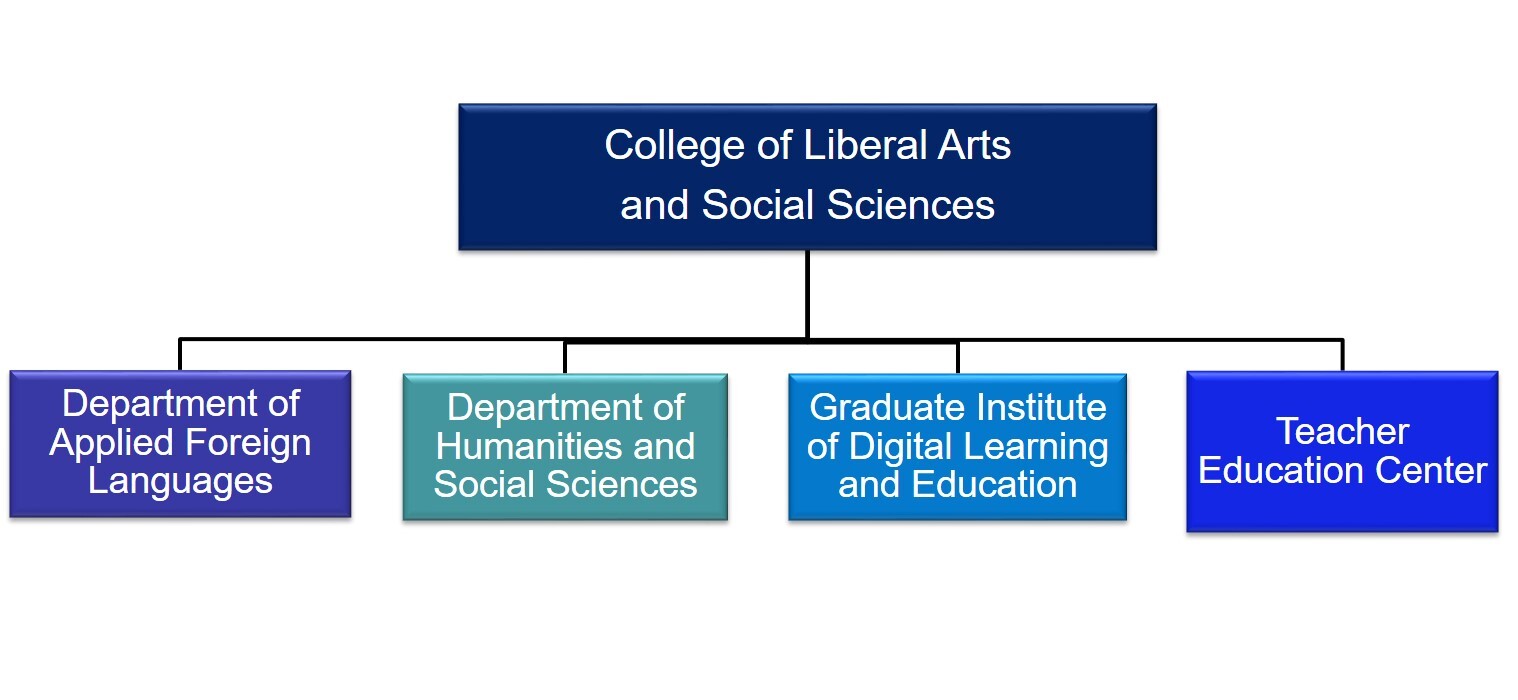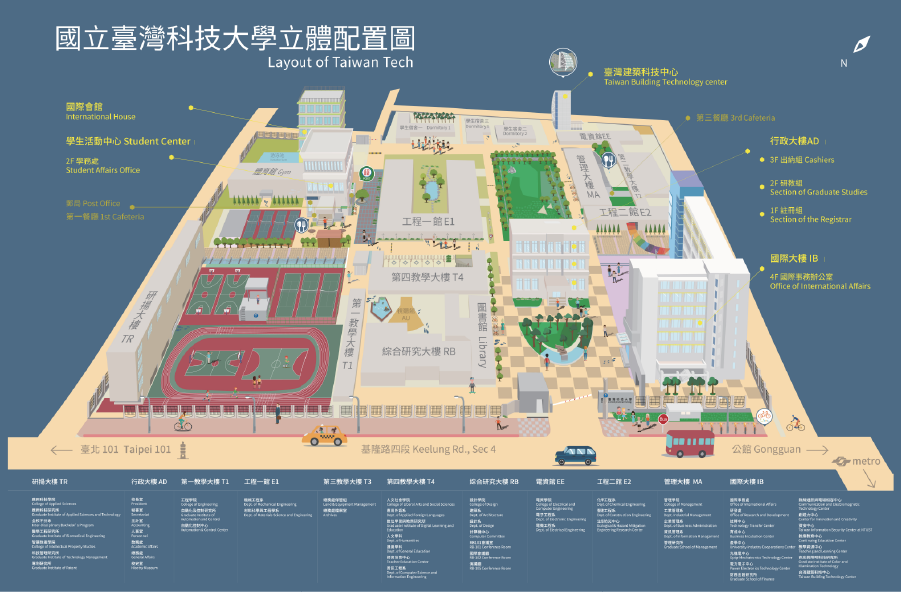Overview

Department of Applied Foreign Languages
https://www.afl.ntust.edu.tw/front/index/
The Department was established in 1998 and has a four-year and two-year undergraduate program, a master’s program and an in-service master’s program. The Department currently has 16 full-time teachers. The Department focuses on cultivating talent in English education, translation and interpretation, professional English or other foreign languages. In addition to the core courses, the Department also offers professional courses that cover three major disciplines: English education, translation and interpretation, and professional English.
The Department also offers second foreign language elective courses for languages such as Japanese, German, French, and Spanish for beginners to advanced learners. In addition, the Department also cooperates with two other universities in Taiwan, NTU and NTNU, to offer inter-university course selection opportunities and encourage students to try out different learning methods.
Students that graduate from this Department will be engaged in various related industries such as translation and interpretation, language education, commercial trade, tourism, catering, news media, advertising and public relations, marketing, publishing, finance, government agencies, and information. Their language capabilities offer a great advantage for their careers as most students also choose to enter domestic and international graduate institutes for continuing education.
Department of Humanities and Social Sciences
https://www.doh.ntust.edu.tw/index.php?Lang=en
The Department provides a diverse variety of courses to its four-year undergraduate and two-year undergraduate programs based on the University’s list of general required courses.
The University is set as an applied research university with the objective of cultivating high-level technical and management talent. The Department’s undergraduate program is based around the ideal of offering “all-round education,” and is committed to improving the humanistic values of its students to cultivate scientific and technological talent that possess both skills and morals. The Department uses its courses and activities to help students learn about how technology is a part of society, and it also has an inherent humanistic character, re-establishing the concept that technology is not outside the society or outside the humanities.
There are currently six full-time teachers, five professors, and one associate professor. Their areas of specialization includes psychology, law, music, literature, and Chinese. In addition, ten plus part-time teachers were employed due to course needs.
Graduate Institute of Digital Learning and Education
https://gidle-r.ntust.edu.tw/index.php?Lang=en
To respond to the needs of the digital industry and the University’s vision of being an “international applied research university,” the Institute’s primary development objective is to cultivate professionals in digital learning and education, emphasizing both research and application. The Institute uses digital learning and education in instruction, learning and psychology as a foundation in combination with technology to cooperate with various professional disciplines, and enhance the theory and research & development in the discipline of digital learning and education.
The educational objective of the Institute is to cultivate researchers in digital learning and education, improve the information literacy of education-related industry personnel, and have the designed digital content actually achieve the educational purpose and effectiveness of being “learner-oriented,” which then increases the value of digital output.
As the Institute belongs to the College of Liberal Arts and Social Science, it emphasizes the cross-disciplinary integration of humanities, sociology, psychology, education, and technology. The planning of the curriculum and instruction focuses on combining theory and practice, developing industry–university cooperation, promoting corporate internships, and integrating students’ learning and practices. The Institute also promotes cross-disciplinary learning and cooperation, and enhance students’ foreign language communication skills. In addition, the Institute is committed to enhancing the quality and impact of its academic papers to promote breakthrough research projects in the discipline of digital learning.
The Institute actively promotes international exchanges for teachers and students, increasing the amount of exchange students and intensifying the recruitment of international students, having teachers go abroad for research, inviting foreign scholars to visit and teach short-term, allowing teachers and students to participate and conduct international seminars, improve the international influence of its academic papers to expand and diversify the international perspective of the teachers and students, and expand the visibility of the University.
Teacher Education Center
The teacher education program for secondary schools at NTUST was established in 1995. Every year about 90 students enroll in this program. Students who fulfill the requirements for pre-service training will be qualified to take the national teacher certification exam in order to teach in junior or senior high schools and vocational senior high schools.
For the pre-service teacher training, students have to complete 26 course credits plus a half-year full-time internship. The courses in the program include educational psychology, introduction to education, curriculum design, guidance theories and practices, educational testing and measurement, subject-matter teaching methods and materials, educational media, education law, education sociology, developmental psychology, class management, philosophy of education, gender education, introduction to special education, creative teaching strategies, and so on.
The Teacher Education Center at NTUST has been evaluated and ranked by the Ministry of Education as one of the nation’s top teacher education centers since 2004.
